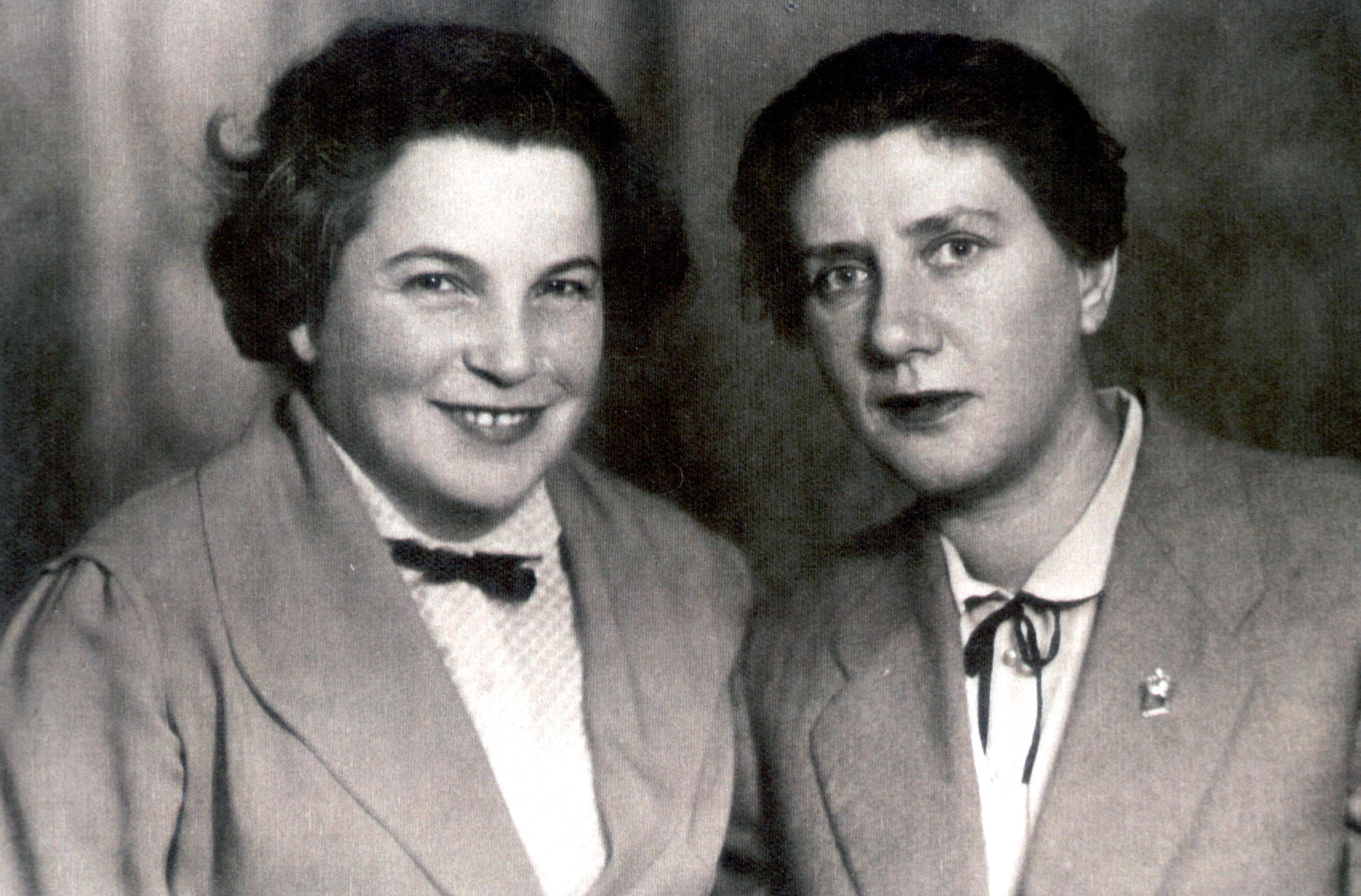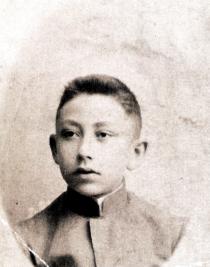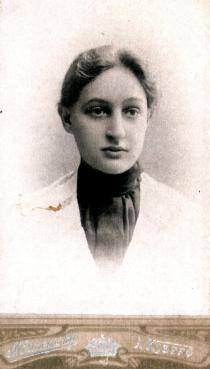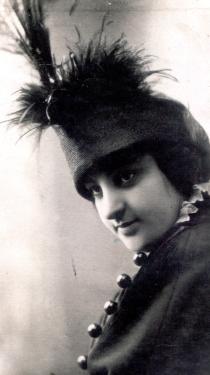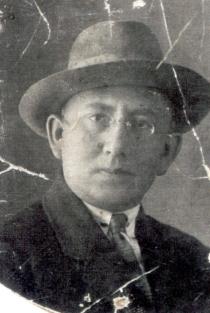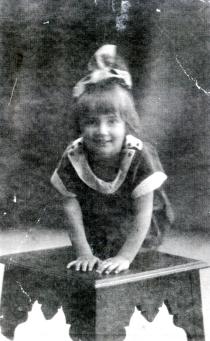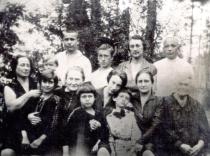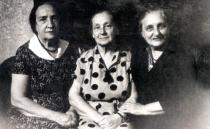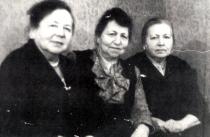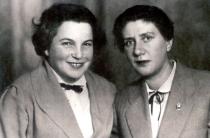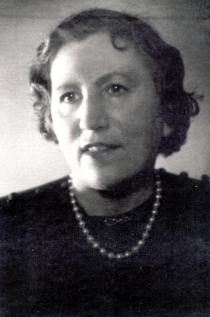This is a photo of Evgenia Feldman, my friend and co-student at Kharkov University, and me at the reunion of students of the university.
I finished school in 1937. I wanted to become a doctor. Now I know that I would have been a miserable doctor: I can't stand the sight of blood and I'm very sensitive, but I always wanted to provide help to people when they needed it. My classmates voted for me to go to a Philology Faculty and their opinion was of the utmost importance to me. A collective's opinion generally was of greatest importance at that time. There were meetings and the collective determined what a person was going to do. I entered the Philology Faculty at Kharkov University. I became a Komsomol member at university. When I was a 3rd-year student I became secretary of the Komsomol unit. I conducted Komsomol meetings and collected Komsomol fees.
I took a post-graduate course at the university in Melitopol. I was writing a thesis entitled Rare publications of Turgenev. My thesis was almost finished, and I was about to take my exams, when the campaign against 'cosmopolitans' 15 began. This happened in 1948. Teachers, journalists and writers of Jewish nationality were accused of cosmopolitism and fired. I was to take an exam in 19th century literature. Before I went to the exam an order was issued to give me an 'unsatisfactory' mark for neglecting Soviet literature. There were no 19th century literature teachers at the exam. The night before the exam my tutor, a very decent and kind man, and I worked on the questions that I might be asked at the exam. I answered my first question at the exam and was told that it was wrong. I demanded that they put down my answers in writing. They had to put a 'good' mark regardless of their intention to give me a bad mark. My next exam was French. My French teacher was given the choice of either giving me a bad mark or being fired as 'an individual that was under the occupation during the war and might have cooperated with Germans'. If this had happened she might not have been able to get another job whatsoever, because this accusation would have been difficult to refute. I heard about this from my tutor. But there was a new head of chair appointed shortly before. He came to the exam and listened to my response. He gave me a 'good' mark. The management of the post-graduate course decided to give me additional work with students such as seminars and classes. I didn't have enough time left for doing my own work.
But the last drop for me became the anniversary of Gogol. I made a speech and then a representative of the chair was to read my letter of reference. Khitrov was to read it, and I couldn't believe what I heard, 'Untalented, lazy, etc.' The attendants requested an explanation from him, and he said that he had written two references, but read the wrong one by mistake. My nerves failed me, and I decided to quit. This was the first and the last time in my life that I faced open anti-Semitism. I returned to Kharkov where my mother had gone before. It was impossible to find a job.
